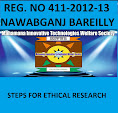Fungal Degradation of Plastic
Plastic pollution is a growing environmental problem, in part due to the extremely stable and durable nature of this polymer. As recycling does not provide a complete solution, research has been focusing on alternative ways of degrading plastic. Fungi provide a wide array of enzymes specialized in the degradation of recalcitrant substances and are very promising candidates in the field of plastic degradation. Different fungal enzymes involved in plastic degradation, describing their characteristics, efficacy and biotechnological applications.
Plastics are usually biodegraded aerobically in nature, anaerobically in sediments and landfills and partly aerobically in compost and soil. Carbon dioxide and water are produced during aerobic biodegradation, while anaerobic biodegradation produces carbon dioxide, water and methane. The most commonly used plastics are polyethylene (PE; 30.3%), polypropylene (PP; 19.7%), polyvinyl chloride (PVC; 9.6%), polyethylene terephthalate (PET; 8.4%), polyurethane (PUR; 7.8%) and polystyrene (PS; 6.1%).
An beneficial activity of fungi in carrying out biodegradation using chemical substances as carbon and energy source for metabolism, thereby breaking down larger molecules to smaller ones. Fungi play a pivotal role, it acts on plastics by secreting some degrading enzymes, i.e., cutinase`, lipase, and proteases, lignocellulolytic enzymes, and also the presence of some pro-oxidant ions can cause effective degradation.
The two fungi, Aspergillus terreus and Engyodontium album, made a meal of the plastic in the lab experiments: Between 25 and 27 percent of samples were devoured after 90 days, and the plastic was completely broken down after 140 days, the researchers report.
https://ssmitws.wordpress.com/2024/04/03/fungal-degradation-of-plastic/


No comments:
Post a Comment